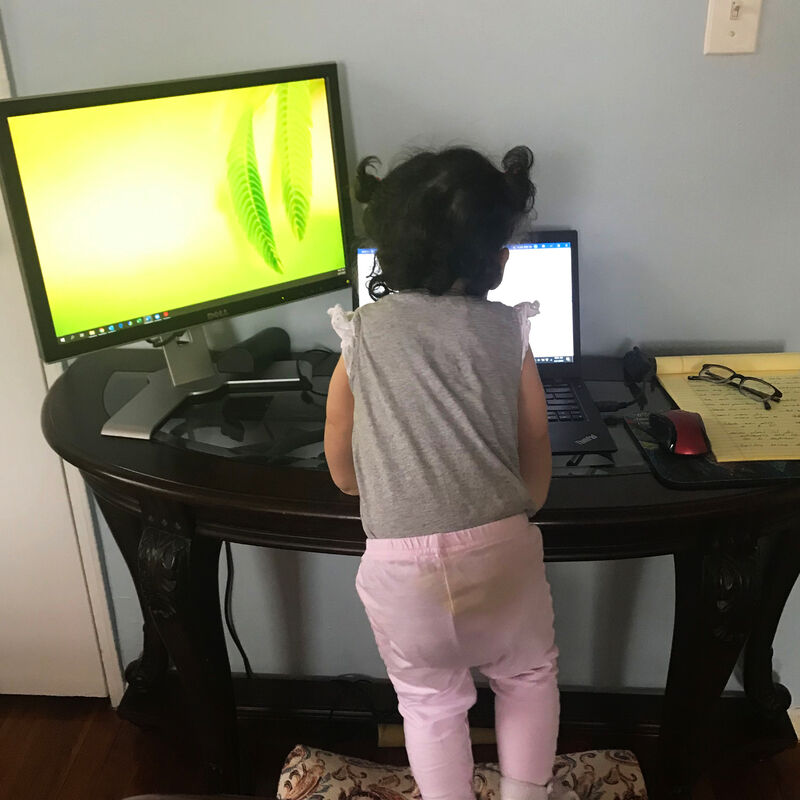|
1/12/2024 1 Comment I do or do not want a prenuptial agreement . . . 5 reasons you may want a prenuptial agreement.The prenuptial agreement is a rule book for you and your spouse in the event your marriage doesn’t work out.
1 Comment
For some of you, this is nothing new. However, for many of you, you are now wearing three hats – providing services for others (whether clients or an employer), childcare and educator. I’ve broken the tips into categories, which in some ways overlap. If you are now an educator due to COVID-19 and you are not an educator by training, be kind to yourself. Distractions If you are working from home and you have children, line up your planned and emergency distractions. My preferred emergency distraction is a favorite toy that I squirrel away for when I need to distract the kids. Other emergency distractions include new toys, rotated toys (older toys that have been packed away so they are “new” again) and craft projects. Planned distractions include things like snacks, television time, phone calls with family members and gaming time. Distractions need to be age appropriate. I would mix up the distractions for maximum effect. Younger children have shorter attention spans and you may need to run through a few of your distractions before you find a distraction that sticks so you can get through your phone call or project. Strategic Planning You have kids and they need your time. You have clients or an employer and they need your time as well. Let’s face it, there is not enough time for everything. Strategic planning lets you make the most use of your time. Here are some ways to map out your time:
Communication & Coordination Communicate with your children and communicate with your clients. Most clients are very accommodating of children, especially in the days of COVID-19 when working from home is a new normal for most office-type jobs.
Time Management You may not be able to get everything done, but you can get more done in less time if you use your time wisely.
Here is a list of online resources that may help with entertaining your children or homework:
In conclusion … Be present. Regardless of whether you are with your children or working on a project, be present for whatever you are doing. Be creative, flexible and experiment. What work for one child may not work for another. What works one day may not work another.
Special thanks to Moshe Amsel of Profit with Law; panelists Heather Trick Ostroff, Mariana Ruiz, Serena Ryan, Gyi Tsakalakis, Alexis Neely, Michael Whelan, Ariana Sylvester and Theresa Shanley for sharing tips on working from home with children. I’ve recapped what I’ve learned and added a few of my own tips. Stay healthy! © 2020 Bonnie Mohr Jan | BMJ Law, PLLC | www.mohresq.com |
ArchivesCategories |
We serve the following localities: Manhattan, Bronx, Brooklyn, Queens
*Will take cases in other counties by special arrangement
Disclaimer: Thank you for visiting our website. Pursuant to New York’s Rules of Professional Conduct, this website is ATTORNEY ADVERTISING. While we hope you find the website useful, you do not create an attorney-client relationship by visiting this website, downloading any of the materials on this website or contacting this Firm.
Do not rely on the information provided instead of consulting with an attorney. Each case is fact specific. It is important for you to consult with an attorney for your individual case.
*Will take cases in other counties by special arrangement
Disclaimer: Thank you for visiting our website. Pursuant to New York’s Rules of Professional Conduct, this website is ATTORNEY ADVERTISING. While we hope you find the website useful, you do not create an attorney-client relationship by visiting this website, downloading any of the materials on this website or contacting this Firm.
Do not rely on the information provided instead of consulting with an attorney. Each case is fact specific. It is important for you to consult with an attorney for your individual case.
© 2020-2022 BMJ Law, PLLC



 RSS Feed
RSS Feed